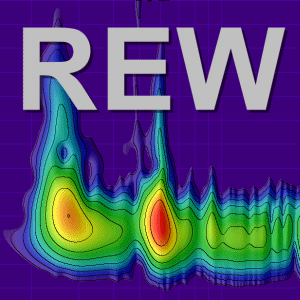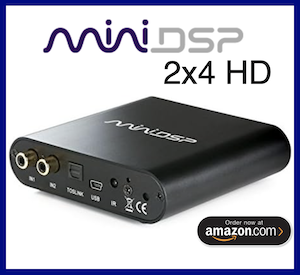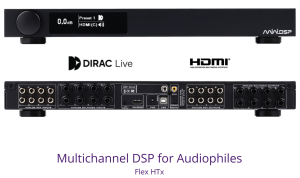Erdman
Registered
Thread Starter
- Joined
- May 29, 2022
- Posts
- 11
More
- Main Amp
- Allo Volt+D
- DAC
- SMSL Sanskrit
- Streaming Equipment
- Raspi + Moode
- Front Speakers
- Davis Acoustics Olympia One Master
- Subwoofers
- B&W ASW608
Hello AV NIRVANA community,
As a new member I am glad to join this forum. I am quite interested in HiFi and have just picked up a umik-1 to make some measurements.
On my linux laptop (MX Linux 21, based on Debian 10) with ALSA (no pulseaudio) : when launching REW (last 5.20.8 version), I got the expected "would you like to use the detected umik-1..." pop-up. I can then load the calibration file as intended.
However on the preferences window, I can see "umik" (more precisely : "U18dB [plughw:1,0]") already selected as "input device", but there is no choice for "input". The "input" field is greyed with no way to select anything else as "default input". I read that I should select "umik" instead of "default input" in order to make calibrated measurements, but I am not able to do that.
Is that expected behavior, or should I check something ?
Two more clues :
- kernel messages when plugging umik :
[ 64.689097] usb 1-2: config 1 has an invalid interface number: 3 but max is 2
[ 64.689108] usb 1-2: config 1 has no interface number 2
- content of roomeq_wizard0.log.txt, which shows that Mic sensitivity should be loaded (last line) :
(date) PM roomeqwizard.RoomEQ_Wizard main
INFOS: REW V5.20.8 running Azul Systems, Inc. JRE 1.8.0_332 64-bit on linux 5.15.0-3mx-amd64
(date) PM roomeqwizard.iC$1 paintComponent
INFOS: Disabling use of BlendComposite due to internal error, waterfalls will not show overlaid cursor
(date) PM roomeqwizard.CalData calFileLoader
INFOS: Mic sensitivity -0,736 dB for serial number 7104664 from 7104664_90deg.txt
As a new member I am glad to join this forum. I am quite interested in HiFi and have just picked up a umik-1 to make some measurements.
On my linux laptop (MX Linux 21, based on Debian 10) with ALSA (no pulseaudio) : when launching REW (last 5.20.8 version), I got the expected "would you like to use the detected umik-1..." pop-up. I can then load the calibration file as intended.
However on the preferences window, I can see "umik" (more precisely : "U18dB [plughw:1,0]") already selected as "input device", but there is no choice for "input". The "input" field is greyed with no way to select anything else as "default input". I read that I should select "umik" instead of "default input" in order to make calibrated measurements, but I am not able to do that.
Is that expected behavior, or should I check something ?
Two more clues :
- kernel messages when plugging umik :
[ 64.689097] usb 1-2: config 1 has an invalid interface number: 3 but max is 2
[ 64.689108] usb 1-2: config 1 has no interface number 2
- content of roomeq_wizard0.log.txt, which shows that Mic sensitivity should be loaded (last line) :
(date) PM roomeqwizard.RoomEQ_Wizard main
INFOS: REW V5.20.8 running Azul Systems, Inc. JRE 1.8.0_332 64-bit on linux 5.15.0-3mx-amd64
(date) PM roomeqwizard.iC$1 paintComponent
INFOS: Disabling use of BlendComposite due to internal error, waterfalls will not show overlaid cursor
(date) PM roomeqwizard.CalData calFileLoader
INFOS: Mic sensitivity -0,736 dB for serial number 7104664 from 7104664_90deg.txt












